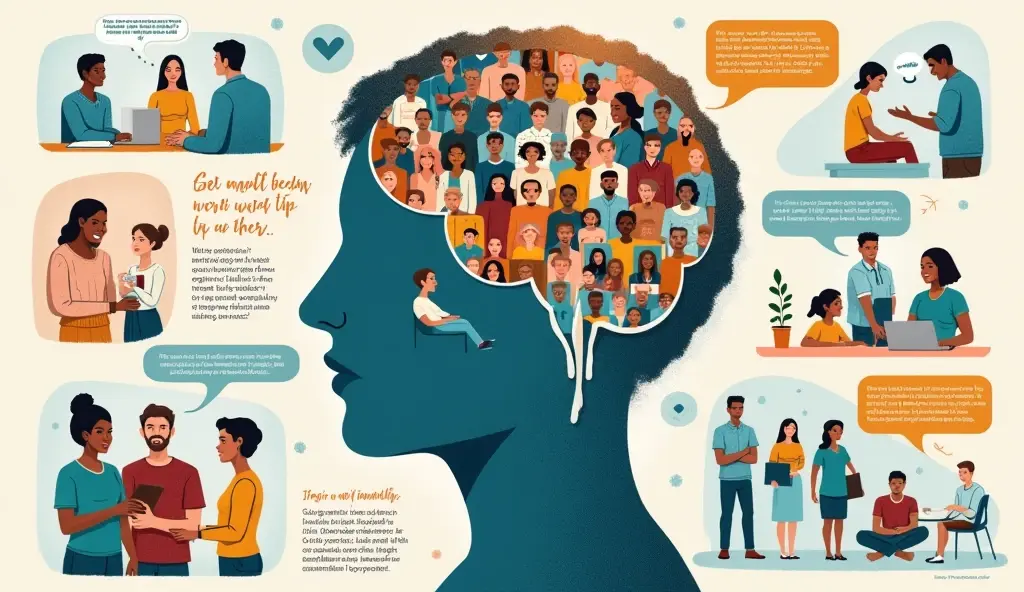Why Need Mental Health Awareness
Mental health plays a pivotal role in shaping the overall well-being of individuals and communities. Unfortunately, the stigma surrounding mental health issues often prevents people from seeking help, which exacerbates the problem. This is why need mental health awareness must be prioritized. By fostering understanding and compassion, we can create a supportive environment that promotes mental well-being for everyone.
Understanding Mental Health
Mental health encompasses emotional, psychological, and social well-being. It influences how individuals think, feel, and behave in daily life. Mental health is also closely linked to physical health, relationships, and productivity. When mental health issues are left unaddressed, they can lead to severe consequences, including chronic illnesses, substance abuse, and even suicide.
The Growing Burden of Mental Health Issues
Globally, millions of people struggle with mental health challenges such as anxiety, depression, bipolar disorder, and post-traumatic stress disorder (PTSD). According to the World Health Organization (WHO), depression is a leading cause of disability worldwide. Despite the prevalence of these conditions, many people remain unaware of the importance of addressing them. This highlights why need mental health awareness is more crucial than ever.
Breaking the Stigma
One of the biggest barriers to seeking help for mental health issues is the stigma associated with it. Negative stereotypes and misconceptions often lead to discrimination, making individuals hesitant to discuss their struggles. By promoting mental health awareness, we can normalize conversations around mental health, making it easier for individuals to seek support without fear of judgment.
Benefits of Mental Health Awareness
Promoting mental health awareness has far-reaching benefits, including:
- Early Detection and Intervention: Awareness campaigns educate people about the signs and symptoms of mental health issues. Early detection can lead to timely intervention, preventing conditions from worsening.
- Increased Access to Resources: Awareness initiatives often highlight available resources, such as counseling services, hotlines, and support groups. This ensures that individuals know where to turn for help.
- Improved Workplace Productivity: When organizations prioritize mental health, employees feel valued and supported. This leads to increased job satisfaction and productivity.
- Strengthened Community Support: A society that values mental health fosters compassion and understanding, creating a supportive network for those in need.

Role of Education in Mental Health Awareness
Education is a powerful tool in promoting mental health awareness. Schools, workplaces, and community organizations can play a pivotal role by:
- Incorporating mental health education into curriculums.
- Organizing workshops and seminars to discuss mental health topics.
- Providing training for teachers, managers, and community leaders to recognize and address mental health issues.
Leveraging Technology
In today’s digital age, technology offers innovative ways to spread mental health awareness. Social media platforms, apps, and online resources can reach a global audience, providing information and support to those who need it most. Interactive tools, such as mental health quizzes and virtual therapy sessions, make it easier for individuals to understand and manage their mental health.
Overcoming Barriers to Mental Health Awareness
Despite the benefits, several challenges hinder the promotion of mental health awareness:
- Cultural Barriers: In some cultures, discussing mental health is considered taboo. Overcoming these barriers requires culturally sensitive approaches that respect local traditions while promoting understanding.
- Lack of Funding: Many mental health initiatives face financial constraints. Increased investment in mental health programs is essential to sustain awareness campaigns.
- Limited Access to Professionals: In many regions, there is a shortage of trained mental health professionals. Addressing this issue involves training more healthcare workers and utilizing technology to bridge the gap.
Steps Towards Building a Mentally Healthy Society
Creating a society that prioritizes mental health requires collective effort. Here are some actionable steps:
- Encourage Open Conversations: Normalize discussions about mental health by creating safe spaces for individuals to share their experiences.
- Advocate for Policy Changes: Support policies that promote mental health funding, research, and access to care.
- Engage in Self-Care Practices: Encourage individuals to prioritize self-care by adopting healthy habits such as exercise, meditation, and proper sleep.
- Celebrate Mental Health Awareness Days: Use events like World Mental Health Day to educate the public and reduce stigma.
Why Need Mental Health Awareness Now More Than Ever
The global COVID-19 pandemic has underscored the importance of mental health. Isolation, uncertainty, and financial stress have taken a toll on millions of people worldwide. This crisis has shown why need mental health awareness is a pressing issue that cannot be ignored. By addressing mental health challenges head-on, we can build a resilient society capable of thriving even in the face of adversity.
Road to Final
Mental health awareness is not just an individual responsibility but a collective necessity. It is a vital step towards building a compassionate and understanding world. By prioritizing education, breaking stigma, and fostering open conversations, we can ensure that mental health receives the attention it deserves. This is why need mental health awareness must remain at the forefront of our efforts to create a healthier, happier society.


Greetings,
I hope this message finds you well. We are seeking strategic business partners and individuals interested in collaborating on exclusive investment opportunities. We represent a network of high-net-worth individuals (HNWIs) from Ukraine, Russia, Africa and the Middle East
Given the nature of the funds, further details will be shared upon request including amount involved. If it interests you to collaborate with us at no risk, please feel free to reach out for a confidential discussion.
Looking forward to your response.
Best regards,
Alex Amin
Email:alexanderamin@infinitycapitalinc.org
Are you looking to increase your visibility on Instagram, TikTok, or other platforms?
With Socpeak.fun, you can instantly boost your followers, likes, views, and more — safely and affordably.
Why choose Socpeak.fun?
• Fast delivery
• Real & organic-looking growth
• Custom packages based on your goals
• Trusted by influencers, brands & startups
• Emails Campaign… and a lot more !
Visit us now: http://www.socpeak.fun/
Start building your audience today — and get noticed.
Got questions or want a custom offer?
Just email us at info@socpeak.net — and ask about your free welcome gift!